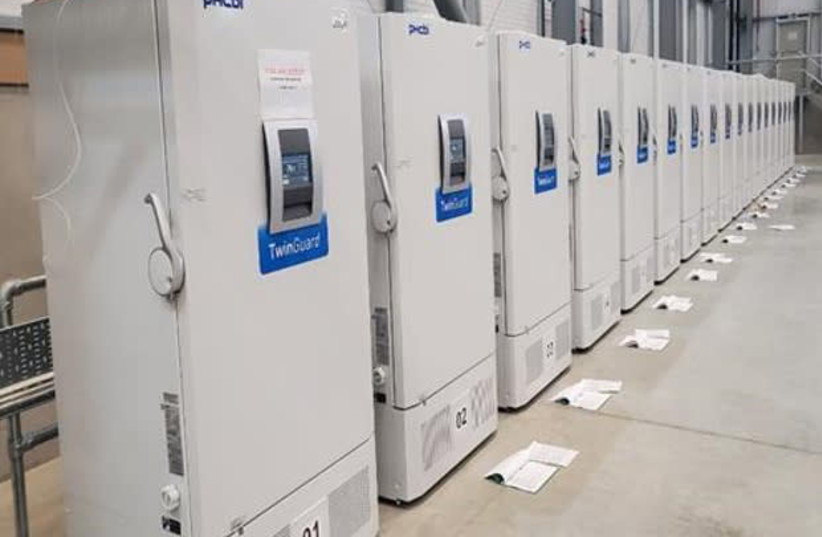Scientists at the Wistar Institute in Philadelphia have developed new SARS-CoV-2 vaccines that prove to elicit stronger neutralizing antibodies and are capable of single-dose protection.
Utilizing computational modeling and in vitro screening, scientists have added glycans to the SARS-CoV receptor-binding domain (RBD) and assessed the effects, according to a report published in the peer-reviewed journal Cell Reports.
An RBD is a key part of a virus that allows it to dock to body receptors to gain entry into cells and lead to infection.
They demonstrated that "glycan-coated RBD immunogens elicit stronger neutralizing antibodies" and allow for vaccines that can protect against multiple variants or strains of SARS-CoV-2.
Through animal experiments, researchers found that these vaccines enhance immunogenicity and prove to significantly increase durable immunity.

They should also alleviate cold chain requirements for global vaccine distribution, have increased efficacy when administered as a single dose or as a booster, and improve immunogenicity in the elderly and immunocompromised populations.
"A difficulty with current vaccines is that neutralizing antibodies decline over time,” says Daniel Kulp, Ph.D, associate professor in the Vaccine & Immunotherapy Center at The Wistar Institute and corresponding author of the study.
Researchers monitored mice immunized with RBD past six months and found that the vaccine provided prolonged protection.
"This is among the first next-generation vaccines that will have more advanced features and broader protection," Kulp said.
These new vaccines should protect against emerging variants that reduce or evade current vaccine-induced immunity.
Co-author David B. Weiner, Ph.D, says the “current vaccine effects on reducing transmission of SARS-CoV-2 variants of concern including Delta and Omicron could be improved for their breadth of protection as well as their immune potency.”
Researchers are currently seeking funding to begin human trials of the vaccine.
